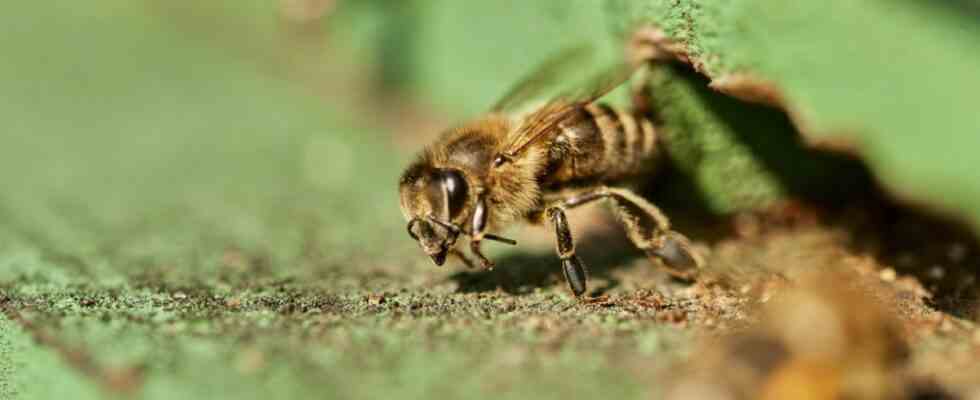The creepy-crawlies are now speaking up. And they have no good news to announce. “We have less and less living space to raise our offspring,” says the dragonfly, swaying its gigantic blue head worriedly. You want to talk now, “on an equal footing” with loved ones: “We just don’t understand that you are destroying your own living space.” The mother-of-pearl butterfly warns that things cannot go on like this. And the gold ground beetle is also depressed. “You yourself are very sensitive with your children when it comes to pesticides in food.”
Wednesday in an art floor in Berlin-Kreuzberg, three oversized insect heads appeared on a podium. This is Germany’s first “insect lobby”. The newly founded interest group has set itself the goal of giving the country’s “11,200,000,000,000,000,000 crawling, crawling and flying workers” “a voice”. No joke, the lobbyists mean it quite seriously. This is also indicated by the presence of Renate Künast. The former consumer protection minister of the Greens, hobby gardener and self-proclaimed “canteen representative” of the Bundestag has been fighting for better animal husbandry in agriculture and for more thought about Germany’s dining tables for years.
But before the Greens get a chance, the insects, who want to gain respect here, have the floor. The creature is underestimated, so you learn. Food worth at least 153 billion euros is produced worldwide every year through plant pollination. However, due to intensive land use and over-fertilization, due to pesticides, glyphosate and water pollution, the biomass of this species has declined by 75 percent in large parts of Germany. As a result, birds, amphibians and humans lost essential food producers.
“You know what famine is from a global perspective. But why are you taking all of our food away from us?” the gold ground beetle asks the people of Berlin. Later he will take off the insect mask and – like some of the other animal actors – introduce himself as a representative of the organic association Bioland. It turns out that not only empathy with the animals is being promoted here, but also the advancement of organic farming.
“Insects are systemically important”
“In order to ensure the survival of insects in our domestic ecosystems, the use of chemical-synthetic pesticides must be reduced by at least 50 percent,” says Gerald Wehde, who plays the gold beetle. Taxes on the use of pesticides are also necessary. “Protect insects, not corporations! Insects are systemically important, without them our livelihoods would falter,” warns Green politician Künast.
What Künast does not say: that the federal government wants to convert 30 percent of agricultural land to organic farming by 2030, but is still a long way from this goal. But a lot can also be achieved privately, says the Green Party. You just have to tirelessly “get on the nerves” of the world with demands for more organic farming and healthier food. But wildflower seeds for the balcony could also help. “90 percent of the insects that eat plants are dependent on native wild plants,” explains Reinhard Witt from the Naturland association. “If we don’t change over,” says Bioland President Jan Plagge, “then we won’t be part of survival either.” He doesn’t mean his industry. He means the insects.

